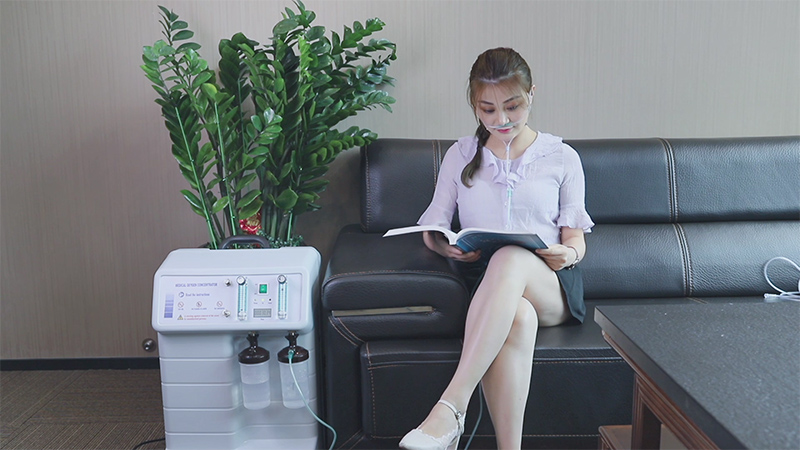-
Company News
-
Industry News
-
Exhibition Information
-
hot sale oxygen concentrator News
-
oxygen concentrator 10lpm News
-
two flowmeter oxygen concentrator News
-
Ozone Disinfector News
-
oxygen machine hospital News
-
low noise oxygen concentrator
-
oxygen concentrator 10lpm
-
5l oxygen concentrator
-
hospital use oxygen concentrator
-
oxygen concentrators
FDA:what to know about Medical oxygen concentrator
- Categories:Industry News
- Author:Sanai Health
- Origin:
- Time of issue:2021-07-14 10:39
- Views:
(Summary description)Medical Oxygen Concentrators: What to Know About At-Home Oxygen Therapy
FDA:what to know about Medical oxygen concentrator
(Summary description)Medical Oxygen Concentrators: What to Know About At-Home Oxygen Therapy
- Categories:Industry News
- Author:Sanai Health
- Origin:
- Time of issue:2021-07-14 10:39
- Views:
Medical Oxygen Concentrators: What to Know About At-Home Oxygen Therapy

Giving yourself too much or too little oxygen can be dangerous. Talk with your doctor about safely using pulse oximeters and oxygen concentrators at home.
To survive, we need oxygen going from our lungs to the cells in our body. Sometimes the amount of oxygen in our blood can fall below normal levels. Asthma, lung cancer, chronic obstructive pulmonary disease (COPD), the flu, and COVID-19 are some of the health issues that may cause oxygen levels to drop. When the levels are too low, we may need to take extra oxygen, known as oxygen therapy.
One way to get extra oxygen into the body is by using an oxygen concentrator. Oxygen concentrators are medical devices required to be sold and used only with a prescription.
You should not use an oxygen concentrator at home unless it has been prescribed by a health care provider. Giving yourself oxygen without talking to a doctor first may do more harm than good. You may end up taking too much or too little oxygen. Deciding to use an oxygen concentrator without a prescription can lead to serious health problems, such as oxygen toxicity caused by receiving too much oxygen. It can also lead to a delay in receiving treatment for serious conditions like COVID-19.
Even though oxygen makes up about 21 percent of the air around us, breathing high concentrations of oxygen may damage your lungs. On the other hand, not getting enough oxygen into the blood, a condition called hypoxia, could damage the heart, brain, and other organs.
Find out if you really need oxygen therapy by checking with your health care provider. If you do, your health care provider can determine how much oxygen you should take and for how long.
Scan the QR code to read on your phone


Scan QR code
Copyright: Shenzhen Sanai Health Technology Co., Ltd. 粤ICP备2021002090号 SEO标签
By : www.300.cn








